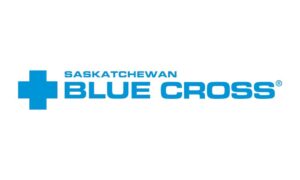AXA XL ILS creates win-win opportunity with investor-backed whole account transactions: Patel

AXA XL ILS Capital Management, the alternative reinsurance capital and insurance-linked securities (ILS) management division of AXA XL, the commercial insurance and reinsurance unit of the AXA Group, is continuing to innovate as it looks to bring returns from across risk classes to investors through aligned structures.
Artemis spoke with Niraj Patel, the Head of AXA XL ILS Capital Management, to get a better understanding of how the company is expanding the scope of ILS, to develop win-win opportunities for the company and its third-party investor base.
Patel began by providing his thoughts on the AXA XL ILS strategy and how his team have been working to deliver for investors.
“We are known as a global insurance and reinsurance company with a strong franchise, brand name, and balance sheet,” he said. “We established ILS operations more than a decade ago, and for the last six years or so, since I joined the company, our focus has been on aligned strategies, essentially focusing on risk origination and underwriting conducted by AXA XL, and structuring transactions based on that.
“We have grown our ILS business significantly over the last several years. Property catastrophe has been our main focus for many years in the past, similar to the broader ILS market. However, in recent years we have expanded ILS capabilities to other lines, including to specialty and long tail lines, in particular through whole account transactions on our reinsurance book.”
Patel added, “We also have the capability to structure tailored one-off transactions for specific situations. For example, we have structured mortgage reinsurance risk transfer transactions in the past and executed parametric insurance transactions. Thanks to our continuing development, overall assets under management through our ILS activities are now well over $1Bn. Our goal and ambition are to continue to expand the scope of ILS, including to other lines within our insurance business.”
Many of these transactions have been entered into using segregated accounts of Prospect Reinsurance Ltd., the special purpose insurer (SPI) registered in Bermuda that AXA XL ILS uses for many of its arrangements with investors. These transactions are managed by XL Underwriting Managers Ltd (XLUM), a wholly owned subsidiary, acting as insurance manager, insurance agent, fund manager and principal representative on behalf of the SPI.
Patel explained the rationale behind the whole-account reinsurance transactions, branded as “Lascaux”, which he sees as particularly innovative.
“We continue to believe that ILS has the capabilities to expand the scope of coverage beyond property catastrophe risk, and we have embarked on our journey in that space. Over the last several years, we have entered into multiple transactions focused on our entire reinsurance business,” he explained.
“One can think of Lascaux transactions as managing and running a standalone reinsurance company, so there is an insurance management aspect, as well as an investment management aspect related to the underlying collateral. There is also all of the governance associated with it, as well.
“We use segregated account SPIs which are governed by independent board members and are dedicated to our transactions only. We hold regular board meetings with those board members and there is an external annual financial audit of all of our transactions.”
Patel provided more details on the whole account arrangement. He said, “We talked about insurance and investment management. We also have to think very carefully about asset liability management.”
“It is a very innovative transaction because of the long-tailed nature of the underlying liabilities. It needs to be structured so that there is efficient capital deployment, as well as an exit collateral release that delivers attractive IRR to the investor, while meeting AXA XL’s capital and risk management needs.”
Patel explained, “The book of business covered by the arrangement is our entire reinsurance business. It includes casualty, specialty, credit, and property lines. Because of the multiline nature of business, there is a capital efficiency and diversification benefit associated with that.”
“Furthermore, the book is actively managed and underwritten by our broader AXA XL reinsurance team, who decide on capital allocation across various lines and across various contracts. As a result, the investor benefits from that wisdom.”
Patel added, “Because of their multi-year nature, these transactions ramp up over time.”
“So, there is investor capital, there is a net premium that gets deposited into the trust, and that forms part of the risk capital pool. That trust account has to be managed and it ramps up over time.”
The key to being able to structure ILS investment opportunities such as this is in the broad scale, reach and expertise of AXA XL, as well as the mechanisms and structures that are selected to ensure the highest-possible alignment with capital providers.
“Everything that we experience, our investors experience, therefore we are fully aligned,” Patel said. “But, in general, we consider ourselves to be a research-focused, rule-based ILS investment manager. All of our transactions have a set of rules that we follow, quantitative rules, and we are very analytical, and we follow those rules to ensure full alignment, to ensure transparency.”
He added that the AXA XL ILS team focusses on building long-term aligned partnerships with investors.
“We focus on end-investors. Our investors are institutional investors such as pension funds, large global asset managers, and other institutional investors,” Patel explained.
“So, our partners can rely on us to look out for their interests, and because of the set of rules that we talked about, and because of the way we have structured alignment, we create a “win-win” situation for both AXA XL and the investors,” Patel told Artemis.
Patel feels now is a good time for investors to look at ways to partner and access returns from a broader range of risks across the reinsurance market.
With the whole account ILS transactions Patel noted that, “It’s an attractive market across the reinsurance sector, and investors are able to participate in that attractive market across property, casualty, and specialty lines.
“The fact that we have an actively managed portfolio means that as the relative value shifts, and we decide that incremental capital deployment is better in one versus the other class, investors benefit from that active allocation.
“At the same time, our reinsurance business is a seasoned book of business. We have long-standing relationships with ceding companies. We have a global franchise for risk origination and, as a result, we are often the preferred company when ceding companies are looking to buy reinsurance protection, and therefore, investors are able to benefit from this.”
Patel said that AXA XL ILS view governance as key and also seek to structure transactions in the most efficient way possible, to deliver on investor IRR.
“We have a full-fledged governance infrastructure and ILS platform, and we are able to leverage that for Lascaux as well as for other transactions, in a very efficient fashion to minimise frictional cost,” he further said.
“Our idea is, if you structure the transaction so that it meets our capital and risk management needs, while delivering an attractive IRR to investors and meeting their other needs, that’s a win-win situation for everyone. That’s what we focus on.”
Patel said that AXA XL views ILS as a core part of its overall capital management strategy.
“This source of capital is a great tool for us to manage our capital positions, leverage our franchise and have a stronger market presence. That’s how AXA XL views it broadly speaking,” he explained.
Patel is bullish on the prospects for the insurance-linked securities (ILS) market, as well as for AXA XL’s ability to continue integrating investor capital in alignment with the needs of its own balance-sheet capital.
“ILS is a very important area of the overall market. I expect ILS to continue to grow, not only for the rest of the year, for the longer-term as well,” Patel said. “I expect the quota share type of sidecars and other ILS transactions, beyond property cat, to grow over time. I’m very bullish on it.”
Coming at this from the perspective of trying to create win-wins, for AXA XL and the ILS capital investors allocating to its ILS strategies and transactions, means a great deal of care and attention is taken when designing structures.
Patel told us that, “We have to carefully consider all the structural features of the transaction, including the capital call, collateral release, commutation considerations, etc.
“So, understanding all of those things and the capabilities we have developed in that area is extremely important.
“We also recognise that not every single line of business will work for ILS on a standalone basis. But we have the ability to customise the transaction, mix and match, find the right risks that work for investors and, where we have a need for capital and risk management, we can have a meeting of the minds, so to speak.”
He also noted that ILS, as an asset class, doesn’t just have to compete with other reinsurance products, but also with other asset classes to which investors allocate their capital.
“We have to compete with that and provide an attractive structure, an attractive risk return profile, and that’s important,” he said.
Adding, “From that perspective, we think that ILS fits quite well within the investor’s portfolio. It adds a unique return stream to investors’ broader portfolios, which consist of bonds, stocks, commodities and things like that.
“Therefore, it provides diversification benefits and in today’s world, with ever expanding investment opportunities, it actually behoves investors to consider mixing the diversifying nature of ILS into their overall portfolio.
“So overall, I’m very bullish about ILS and how it can expand and grow over time.”
Patel concluded our interview by stating, “We are pleased to enter into these innovative partnerships that deliver attractive risk-adjusted returns to our investors while providing multiyear capital support to AXA XL.
“These transactions underscore the strength of our franchise, demonstrating the value of our global reach, scale, and market presence. By structuring these innovative transactions, we are able to leverage our expertise in underwriting and portfolio management and manage capital with which our investors have entrusted us, side by side with our shareholders’ capital.
“The Alternative Capital business at AXA XL serves as the nexus between AXA XL’s re/insurance risk origination franchise and institutional investors’ allocation of capital to insurance linked risk premia opportunities. The AXA XL ILS Capital Management team works closely with strategic investors and partners to create investment structures, alongside AXA XL’s own balance sheet, to address some of the world’s most complex re/insurance risks.”
Read all of our interviews with ILS market and reinsurance sector professionals here.




